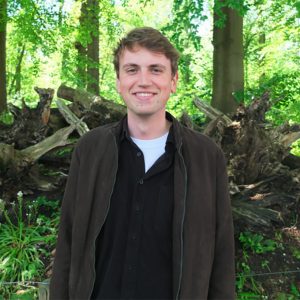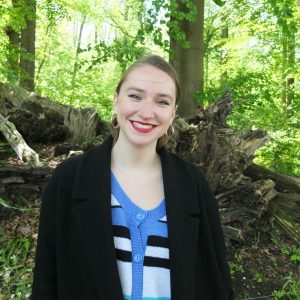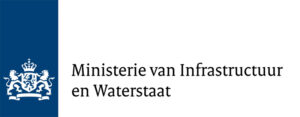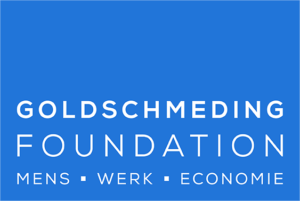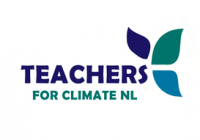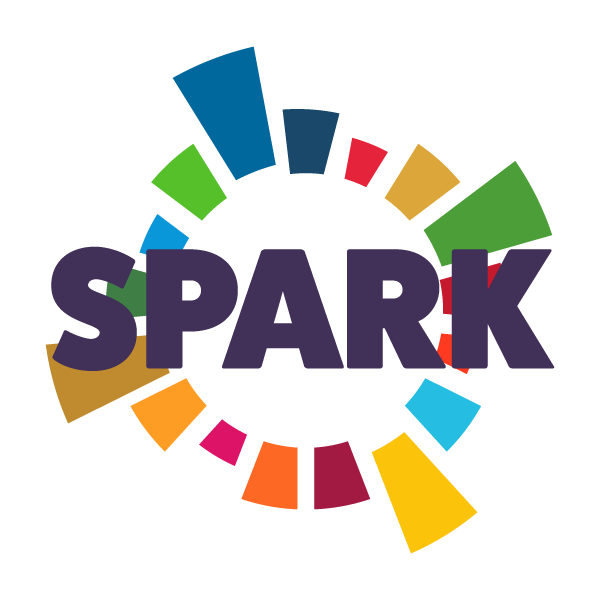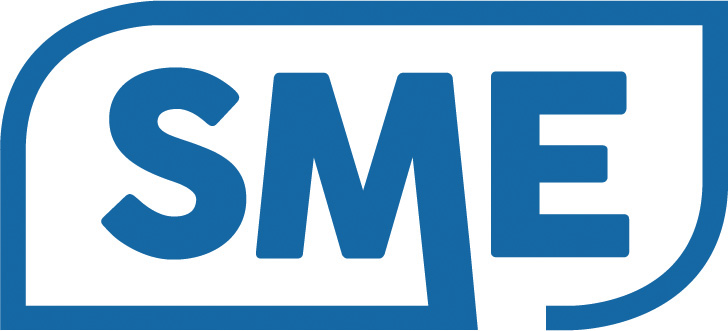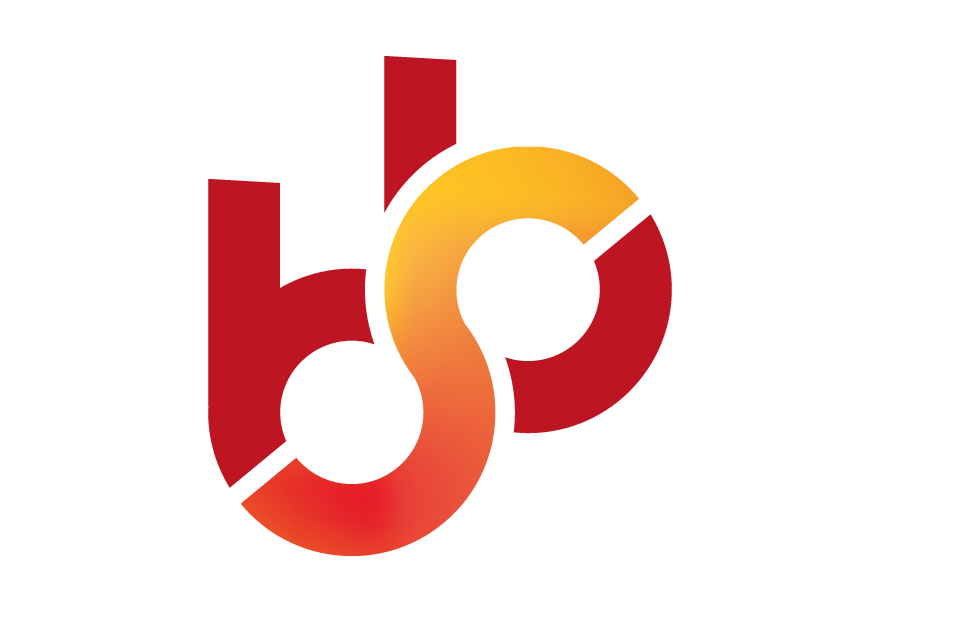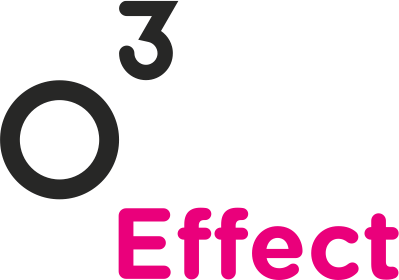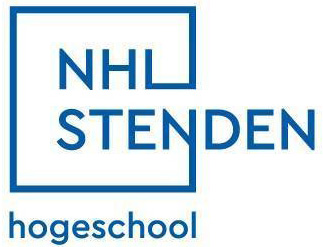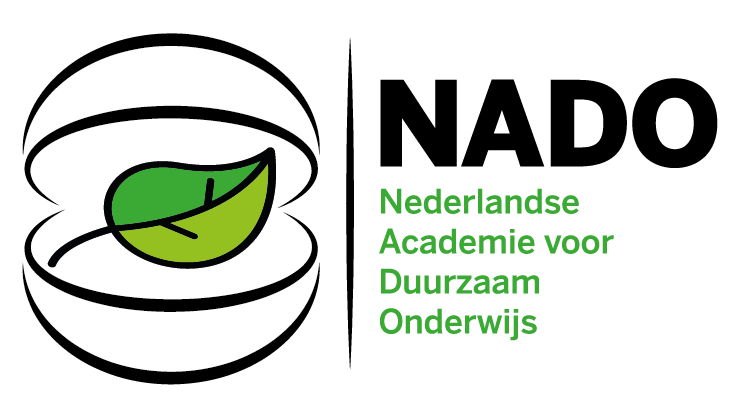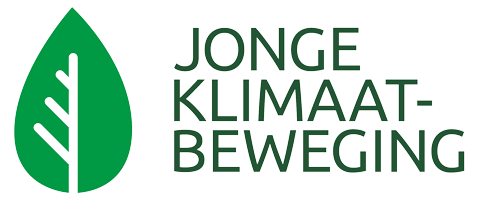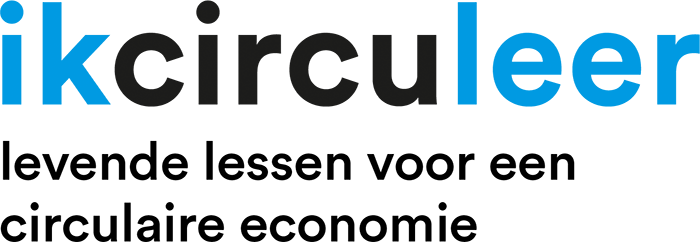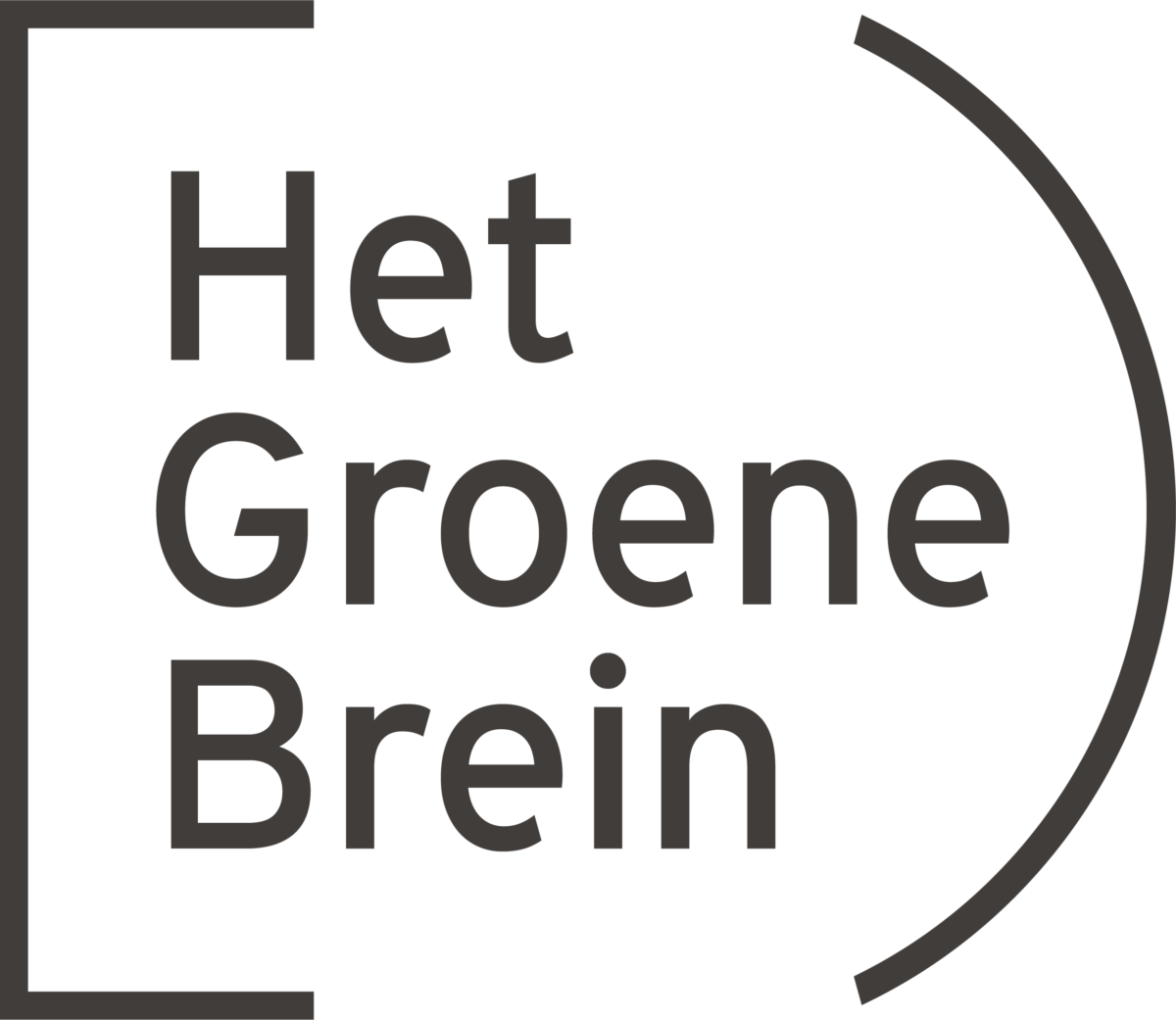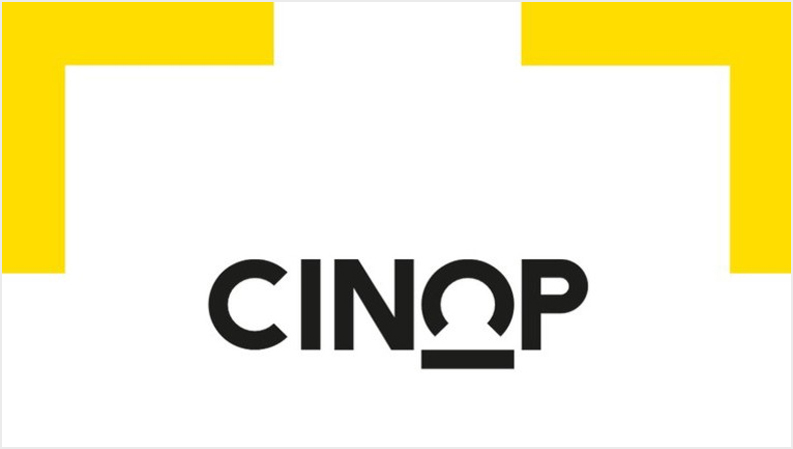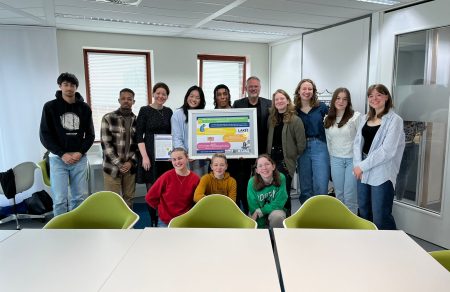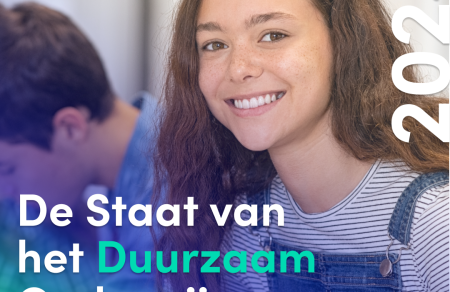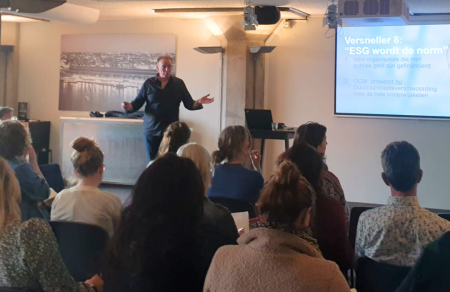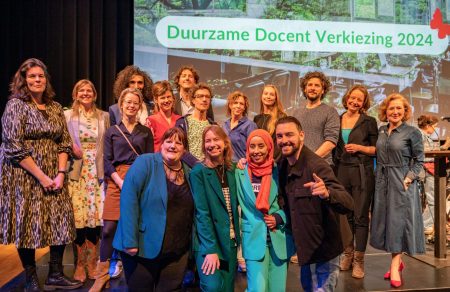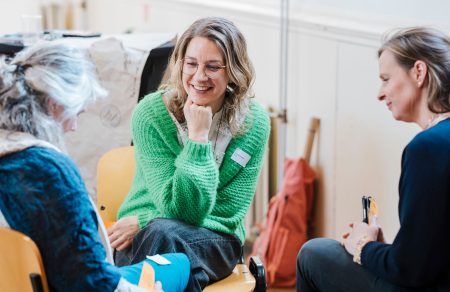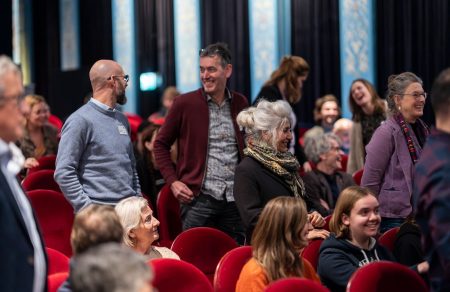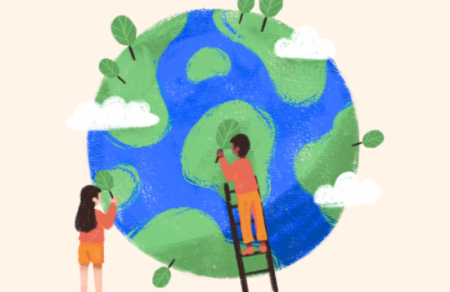Since in 2017 the raw materials agreement The circular economy is a much-discussed topic within the business community. Different agreements have been made per sector to shape this economy. The development of circular skills, which contain the skills that the labor market must master in the circular economy, was one of these agreements. To achieve this, Cooperative Learning for Tomorrow received from the Ministry of IenW tasked with providing an impetus for the development of circular skills within education. The Circular Skills Program was a fact! Within this program, education professionals work together to figure out how to provide education that is current, relevant, and fun, and that equips young people with the knowledge and skills they need to thrive in a sustainable world. In the Circular Skills film, you can see how we approached this with our partners!
How can you join/participate?
There are several ways to get involved in Circular Skills. Below you'll read about a few options. What do you hook up with?
Newsletter from Circular Skills for all
Stay up to date on what's going on at Circular Skills. Sign up for the newsletter here!
Community of practice (CoP) for teachers/education professionals
In various corners of the country, teachers, teacher-researchers, professors, practitioners, and school leaders and administrators are experimenting with ways to engage their education in the circular transition in their communities. Living labs, innovation hubs, challenges and talent programs; just a few of many examples. In May, as part of the Circular Skills program, three communities of practice (CoPs) in which education professionals engage in group learning and development. Sign up here!
Read more
Participants are actively working in their own practice (or have concrete plans to get started in the near future) on, for example, setting up a hybrid learning environment, applying new teacher roles and skills, or strengthening a learning (school) organization to introduce students to the challenges of the circular economy.
In four meetings (two before the summer break, two after), participants work together under the guidance of experienced facilitators to sharpen their vision, engage the right stakeholders, and create and test designs. In between the meetings, the participants get to work on their own development in their own practice. The experience they gain in this process is brought back to the community. In this way, everyone can learn from and with each other in terms of vision and approach and participants are encouraged to take concrete steps.
You can apply for one of the following three CoPs:
- Hybrid learning environmentsFor (associate) professors, practical professors, teacher researchers and lecturers in vocational education (MBO) and higher professional education (HBO) who want to shape cooperation on transition issues with parties in the field and are looking for structural embedding in education.
This CoP is facilitated by Dianne de Fijter of The Green Brain. - Pedagogy & didactics: For teachers in vmbo, mbo and hbo who want to acquire further skills in organizing and providing education in which pupils/students work on transition issues in the vicinity of the school.
This CoP is facilitated by Ruth Pasternak of SME. - Vision & Leadership: For school leaders, education managers and project leaders in VMBO, MBO and HBO who (want to) initiate educational innovation in the field of sustainable development in their school or department.
- May 12 (1:00-5:00 p.m.)
- June 02 (1:00pm-5:00pm)
- September 22 (1:00-5:00 p.m.)
- October 13 (1:00-5:00 p.m.)
Community of practice (CoP) for policy makers.
The transition to a circular economy has far-reaching consequences for the world of work: jobs are created, disappear and (above all) change in nature and content. To cope with the transition and additional issues, the region needs sufficient and the right talent. But the transition is unpredictable and uncertain. So how do you, as a province, municipality or development company, ensure that the necessary talent is available at the right time and the right place? You can join a CoP in which participants actively work on related issues in their own practice and meet periodically to develop new perspectives, gain knowledge and/or find backing. Sign up here!
Read more
Exploratory interviews with policy makers, regional administrators and other professionals concerned with issues such as Human Capital agendas, labor market and training, learning and knowledge development in the circular transition show that many of them are searching for their role in this challenge. The desire for more collaboration between regions was clearly expressed in this regard.
Supra-regional cooperation
The impact of the circular transition on the labor market and education varies by region, depending on dominant industries, demographics, and regional labor market trends, among other factors. But the challenges facing regional policymakers, administrators and professionals tend to be similar: How do you encourage the development of circular skills among professionals and students? How do you connect education and business to work together on this issue? How do you ensure that you as a region are ready for the future?
Exchange on these topics is considered of added value, provided that this exchange contributes concretely to talent development appropriate to the needs arising in the circular transition in one's own region. Therefore, it is proposed to form a community of practice (CoP) with professionals working on the circular transition and talent at provinces, metropolitan municipalities and regional development agencies.
Design
In a CoP, learning and development go hand in hand: participants actively work on related issues in their own practice and meet periodically to develop new perspective, gain knowledge and/or find backing. The alternation between learning together and developing and reflecting on one's own work make for a powerful collaboration.
In concrete terms, the Learning for Tomorrow cooperative organizes a number of meetings in consultation with the participants during which participants sharpen their vision; research their issue and environment; design interventions and instruments; and jointly reflect on their experiences. In the meantime, participants are expected to investigate their practice and test their assumptions with relevant stakeholders; activate and involve their colleagues and other relevant stakeholders; experiment with prototypes (interventions or instruments) they develop; and collect experiences to reflect on.
Invitation
The CoP will start in spring 2022 and continue until the end of the year. The meetings - the program and the moments - will be planned in consultation. Policy makers, employees and other professionals from the province, a metropolitan municipality or a regional development company who (want to) work on the issue of 'talent for the circular transition' are welcome to participate. Note: participation does require commitment, in order to complete the course in its entirety. Unfortunately it is not possible to join the program in the meantime.
There is room for about 25-30 participants. Together they bear the costs of the course: €750 per participant with 15 participants or €500 per participant starting from a total of 20 participants.
You can sign up via Daan (Project Manager Circular Skills)!
Sustainable Education Roadmap: vision creation for administrators
The first version of the Sustainable Education Roadmap will be ready for use as of early September 2021. The Roadmap is designed for all school types, from primary to university education. The roadmap is here and can be used free of charge on the Guides platform. To stimulate schools in practical education, vmbo, mbo and hbo to form their own vision and strategy on learning for sustainable development with the Route Map Sustainable Education, Leren voor Morgen has extended its stimulation scheme. Are you interested in working with the Route Map? Or do you have questions about this instrument or the incentive scheme? Read more and contact Froukje Zumbrink and fill it registration form In.
Talent program for students in mbo, hbo and wo
In September, the national Leadership for the Circular Transition talent program will start, training the next generations of leaders to become circular agents for the Netherlands of tomorrow. Students develop circular skills while working on real issues in living labs in your region. Learn more about the application will follow shortly.
Contribute to Circular Skills as a company/innovation network
Businesses and innovation networks are also more than welcome to join Circular Skills to contribute ideas and make new connections between education and business. Let it Daan know if you would like to be involved!
Are you interested but not sure exactly what you want to contribute to? Do you have questions about any of the above activities? Please contact Daan (Project Manager Circular Skills)!
